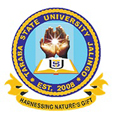Geo-linguistic Survey of Languages Spoken in Southern Taraba State, Nigeria
Prof. Dauda Ishaya Suntai
Department of English and Literary Studies,Taraba State University, Jalingo
Aidan Juliana &
Ishaya Naomi Abdul
Department of Languages and Linguistics, Taraba State University, Jalingo
Abstract
The study is a geo-linguistic survey of languages spoken in the Southern Zone of Taraba State, Nigeria. The specific objectives of the study are to enumerate, demarcate, categorize and describe the languages and their relationships. Multi-stage, Purposive, and Simple Random Sampling Technique were used in the selection of 39 respondents, using a structured questionnaire. Descriptive statistics was employed for the analysis. The findings show that many languages have been identified and treated as separate languages, whereas they are dialects of the same languages. Also, some languages are spoken beyond the geographical maps of their Local Government Areas. In addition, some are spoken by the majority, others are spoken by the minority groups at the village level, some are socio-linguistically safe while others are on the verge of extinction. The results of the descriptive statistics show that Ibi Local Government Area has the highest percentage (43.59%) of llanguages spoken in the study area as it has the higher number of the major towns. On the other hand, Wukari Local Government Area has 20.51% of the llanguages spoken in the study area. While Ussa/Yangtu have the least number of (5.14%) languages spoken in the study area, Donga and Takum Local Government areas have equal percentages (15.38%). The major constraints of some languages spoken in the study area are that their status and the number of their speakers are endangered. Therefore, the study recommends that in order to save these languages predisposed to extinction, rigorous and concerted efforts should be made by native speakers of the languages that are endangered due to social, economic, and political pressures. This theycould do byenhancing on concious efforts such as advocacy and non-formal importation to ensure linguistic harmony and guard against polarization.
Key Words: Geo-linguistic, survey, ethnic groups, attitude, languages.
Acknowledgement
The authors thankfully acknowledge the financial assistance given by Tertiary Education Trust Fund (TETFund) for making this research work a reality.
Introduction
Language study and research in many unwritten languages of Nigeria has not received the attention it deserves; in the first place the number of languages in Nigeria is not known and the status of the languages too is not known, the scanty information on the languages remained speculative. At the moment, most of the preliminary studies conducted on the languages spoken in Nigeria are defective as some languages are mistaken to have one to one correspondence with their ethnic groups. For instance, in Taraba State one ethnic group has more than three languages spoken within an area.
